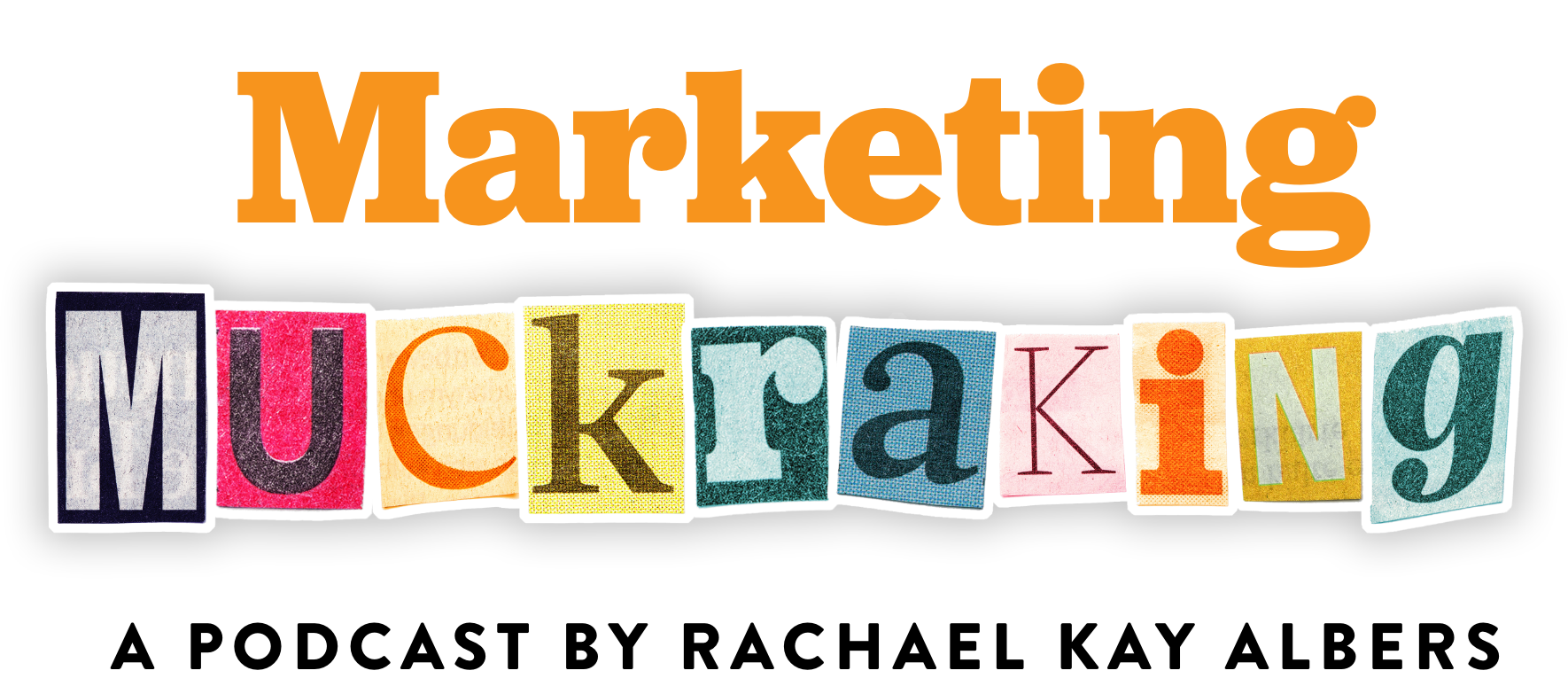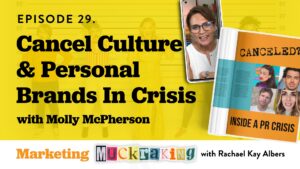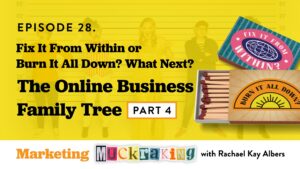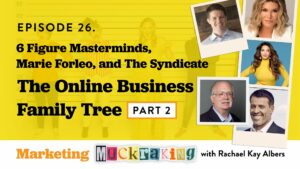Welcome to Part 3 of this four-part series on The Online Business Family Tree, where we trace back how we arrived at this moment in internet marketing and online business and who are the key leaders who brought us here.
In this installment, we’re time traveling from WWI and WWII all the way to today, where clickbait, ClickFunnels to hell, and faking it ’til you make it have spread across the branches of this rotten business tree, poisoning the fruits that fall to everyone clamoring for their taste of success.
Remember, this stuff didn’t start on the Internet — it goes back hundreds of years. To understand marketing history is to understand ourselves and our culture — marketing is the fuel for the engine of capitalism. Let’s take a trip through time, so you can be a more informed consumer and, hopefully, a more ethical marketer.
What you can expect in Part 3 of the Online Business Family Tree:
- What ex-employees are saying about Brooke Castillo and The Life Coach School
- How a bro marketer gamed the system to launch a chart-topping country music album (by tricking people into buying it)
- The true story of the country's first famous "snake oil salesman" and how he culturally appropriated his way across the country
- Why we can thank Frank Kern for the CAN-SPAM act and how he still brags about building his business illegally
- That Tony Robbins scene in "Shallow Hal" and how he hypnotized his way to the top
- The appalling truth of ClickFunnels and why Russell Brunson thinks Adolf Hilter is a business leader — while the industry co-signs this concept
- What Nazi leaders learned about marketing from American propaganda
- How Christian nationalist preachers built the advertising industry
- What Jenna Kutcher, Amy Porterfield, and Mel Robbins really did on their Napa Valley mastermind and how they leverage parasocial bonds to sell to your sense of loneliness
- Who monetized her friend's death to boost her clickthrough rate
- Why no one can be Gary V, even Gary V, and the problem with corporations masquerading as people
- How "more good millionaires" isn't the answer to systemic problems
About Lisa Robbin Young
Lisa Robbin Young has 30 years of business experience as a coach and creative entrepreneur: she is an award-winning speaker, best-selling author, and accomplished musician with multiple albums to her credit. You may even recognize her from the Disney+ show “Encore.” She is also the host of the “Creative Freedom” show — I highly recommend her music video parodies. Check out “There are worse things I could do” for a Marie Forleo crossover with Awkward Marketing. She specializes in helping creative entrepreneurs build a business that works for how you’re wired to work.
An annotated guide to the online business family members we discuss in Part 3:
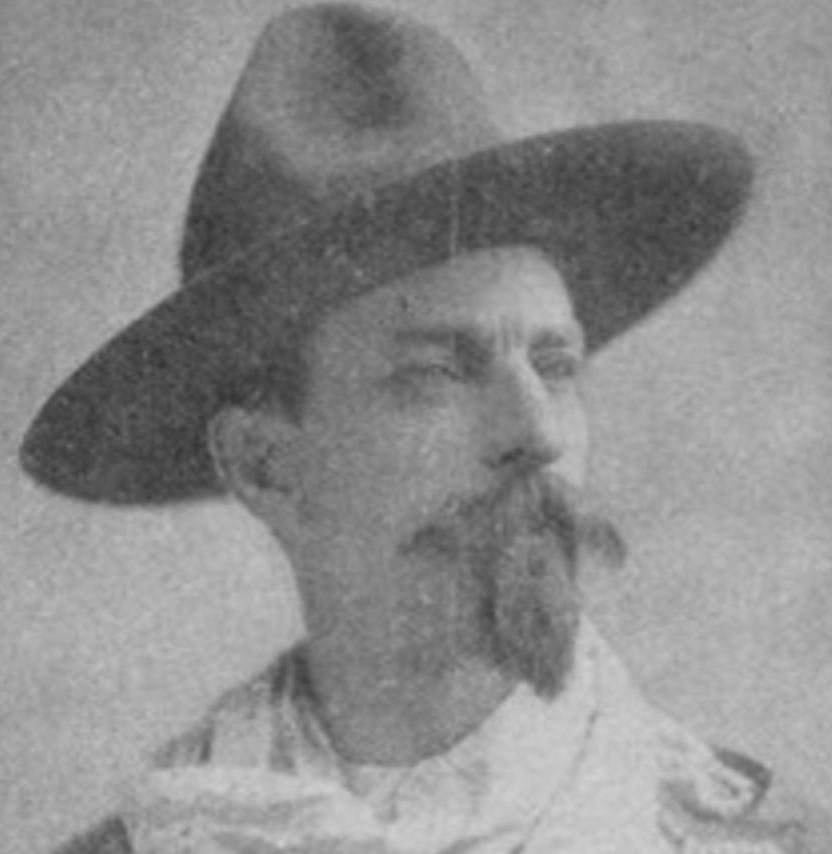
Clark Stanley
Clark Stanley, self-styled "Rattlesnake King," is the reason the term "snake oil salesman" exists. Stanley lied to customers about how he learned his snake oil secrets from the Hopi nation. In reality, Chinese immigrants brought snake oil with them and introduced it to Americans while working on the railroads. But Stanley didn't sell that type of snake oil. He sold a concotion largely made up of turpentine and chili powder that the FDA ultimately found contained no snake oil at all.
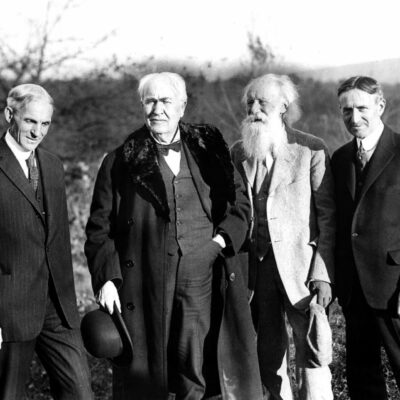
Henry Ford and his "vagabonds": Thomas Edison, Harvey Firestone, and John Burroughs
The early American captains of industry made up one of the first peer-led business masterminds. Ford, Edison, Firestone, and Burroughs would go glamping in the woods to talk shop. Eventually, presidents like Warren G. Harding and Calvin Coolidge joined them. Known racists.
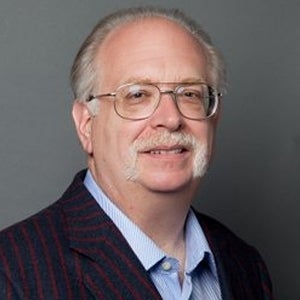
Dan Kennedy
Dan Kennedy, infamous for his work in direct mail marketing (i.e. junk mail), led one of the first internet marketing copywriter mastermind groups with Bill Glazer, the Glazer-Kennedy Insider's Circle. He mentored Russell Brunson, who eventually bought the Glazer-Kennedy Insider's Circle and leveraged Kennedy's audience and teachings to expand ClickFunnels, or DickFunnels as we call it around here.
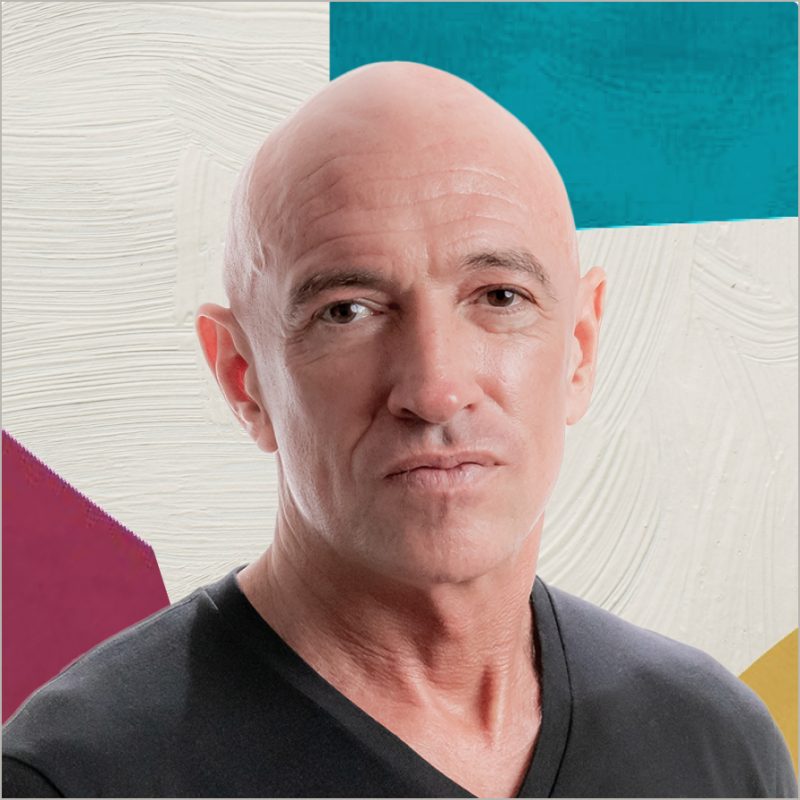
Mark Joyner
Mark Joyner, known to some as the "godfather of digital marketing," leveraged his military background to write and teach Mind Control Marketing and Simpleology, all about how to play with people's heads for a payout. He taught Russell Brunson how to build a cult of personality and call it "business." Joyner's website now touts his "8% bodyfat." Ok?

Armand Morin
Armand Morin's website says he was "one of the original pioneers responsible for making Internet marketing what it is today." He said it, not me! Famous for launching an utterly cringeworthy, Billboard chart-topping country album (under the name Michael Lee Austin) by conning his list into buying CDs so he could teach them how to con your list into buying CDs. Lover of auto-tune.
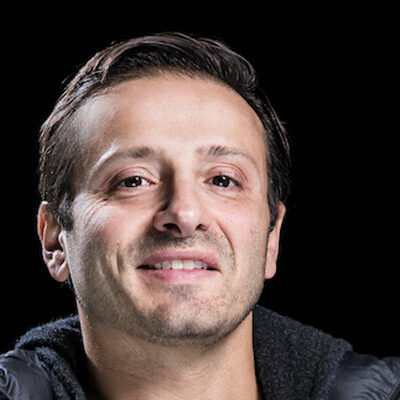
Yanik Silver
Yanik Silver worked with Dan Kennedy to help bring predatory copywriting techniques online. He is often found in search results alongside "get rich quick schemes." Today, he sells "cosmic" oracle cards.

Frank Kern
Frank Kern, whose claims to fame include being sued by the FTC for false and misleading business practices, was an original member of "The Syndicate" internet marketing cult. He's been known to cosplay as a laid back surfer, but today he's wearing a lot of suits again, so you tell me. Responsible for the CAN-SPAM act, still bragging about how he built his business the illegal way.
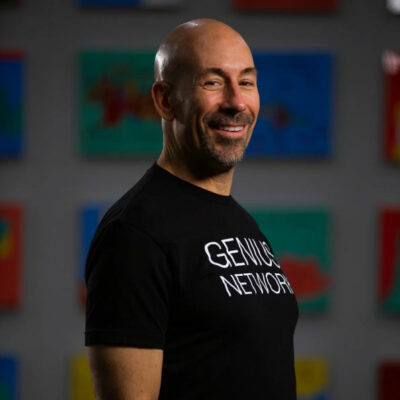
Joe Polish
Joe Polish is one of those guys who refers to himself as a genius. (And he's got a "Genius Network" $25K+ mastermind group of his own, in case that's in doubt.) He's also the president of Piranha Marketing Inc, if the name gives you any sense of his personality. He was a member of The Syndicate.
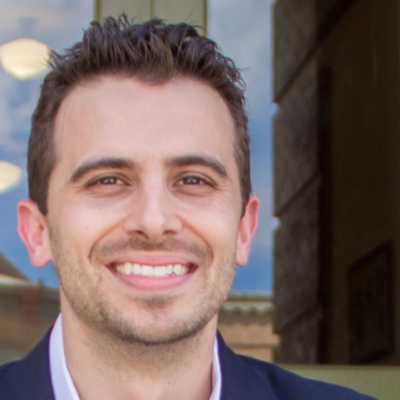
Ryan Levesque
Ryan Levesque is another generic boy boss with a glorified business card masquerading as a book. Known for his ASK method and, notably, not answering questions about how he actually made his fortune.
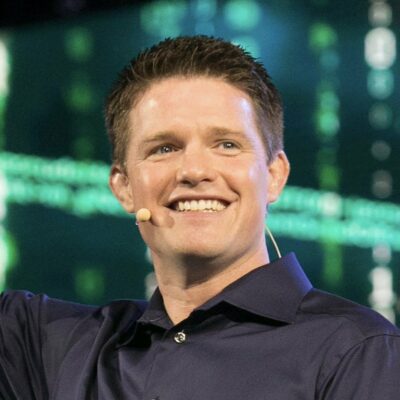
Russell Brunson
Russell Brunson developed ClickFunnels, a software designed to ruin your life and make him rich. Brunson studied mind control and junk mail from Mark Joyner and Dan Kennedy to build his business and now teaches people how to build cults for cash. Notably, he wrote a book where he cites Hitler as one of his business mentors.

Edward Bernays
Edward Bernays, known as the "Father of Public Relations," literally wrote the book on Propaganda. He devoted much of his work to convincing business & political leaders that the masses don't know what's good for them and need to be told what to think and who to vote for. Also helped overthrow the Guatemalan government on behalf of United Fruit (now Chiquita). Loved capitalism, hated human rights.
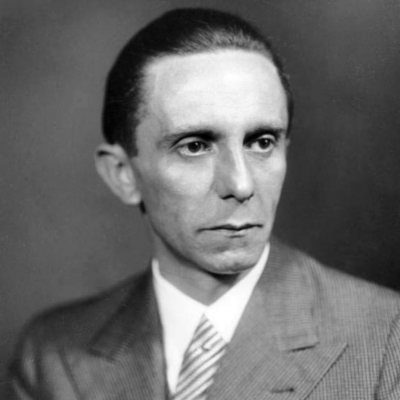
Joseph Goebbels
Joseph Goebbels was the chief propagandist for the Nazi party and one of Hitler's closest colleagues. He studied American propaganda, the Committee on Public Information, and the work of Edward Bernays, which then shaped his strategy in developing propaganda campaigns in Nazi Germany.

Gary Vaynerchuk
Gary V is perpetually yelling at the Internet. He got famous selling wine on YouTube and then parlayed that into a social media advertising agency, VaynerMedia. Today, Gary mostly shouts at his phone about the importance of being kind. And he's happy to report, he traded in his wife for an Instagram model. The pair publicly debuted their relationship at Cannes, where they wore "mental health mantras" on their runway looks. (Mantras included "nice always wins" and "femininity is power." K.)
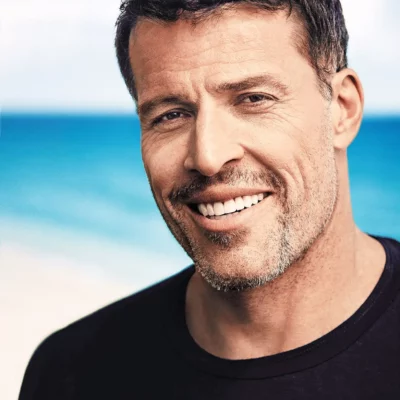
Tony Robbins
Tony Robbins, who I like to call "Tiny Tony," is one of the world's top grifters. Largely influenced by Think and Grow Rich, he peddles his business and hypnosis-based manipulation to anyone who will throw money at him. His business model is based on cross-pollinating his audience with famous folks whose followers have never heard of him before. Big fan of victim blaming and denying sexual assault allegations. All roads lead back to Tony Robbins.

Dean Graziosi
Dean Graziosi, known to some as "Creepy Uncle Dean" ("some" is me) was sued by the FTC for defrauding real estate investors out of $400 million. (This was his next move after graduating from being a used car salesman.) But Graziosi is no "one hit wonder": he's under FTC investigation as we speak! Today, Graziosi spends his time following Tony Robbins around and convincing Jenna Kutcher he's qualified to be anybody's mentor.

Marie Forleo
Marie Forleo is a business coach who built her B-School empire by playing moneyball, riding coattails, and tucking non-disparagement clauses into her terms & conditions. She has a history of silencing members of her community when they speak up about racism and misogyny in America. Loves Tony Robbins. Hates the truth.
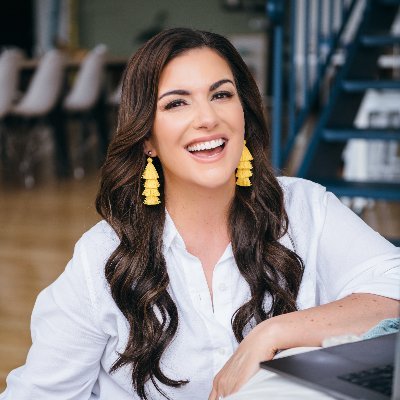
Amy Porterfield
Amy Porterfield is the voice of "Online Marketing Made Easy," a popular business podcast that makes her easy money and everyone else? I'm not sure. Before launching her own business as a "Facebook expert," Porterfield worked for Tony Robbins, and then joined Marie Forleo's mastermind, where she rubbed elbows with future affiliate partners. She was once featured on Good Morning America as Rachel Hollis and Jenna Kutcher's BFF, but dropped Hollis like a hot potato when Toiletgate made her SEO-optimized friendship with Rachel bad for business.
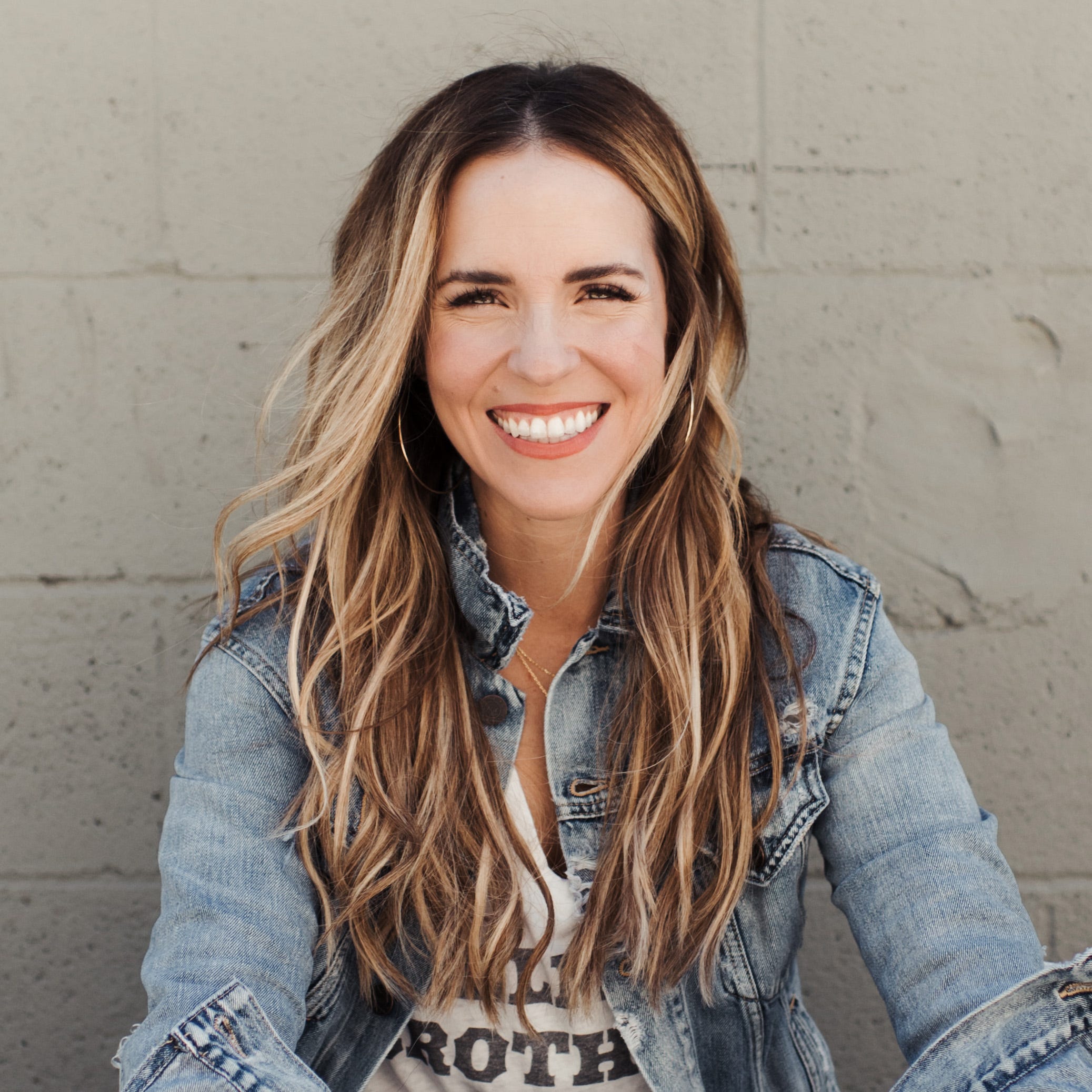
Rachel Hollis
Rachel Hollis taught girls everywhere how to wash their faces, but not their toilets. When she went viral in 2021 for telling her audience she worked her ass off so that someone could clean her toilets for minimum wage, the Online Business Family Tree performatively distanced themselves from her (while somehow still having no issue with Russell Brunson and his love of Hitler). Hollis, once SEO-optimized BFFs with Amy Porterfield and Jenna Kutcher, took one for the team (i.e. the industry) and became the scapegoat for the family tree's systemic problems.
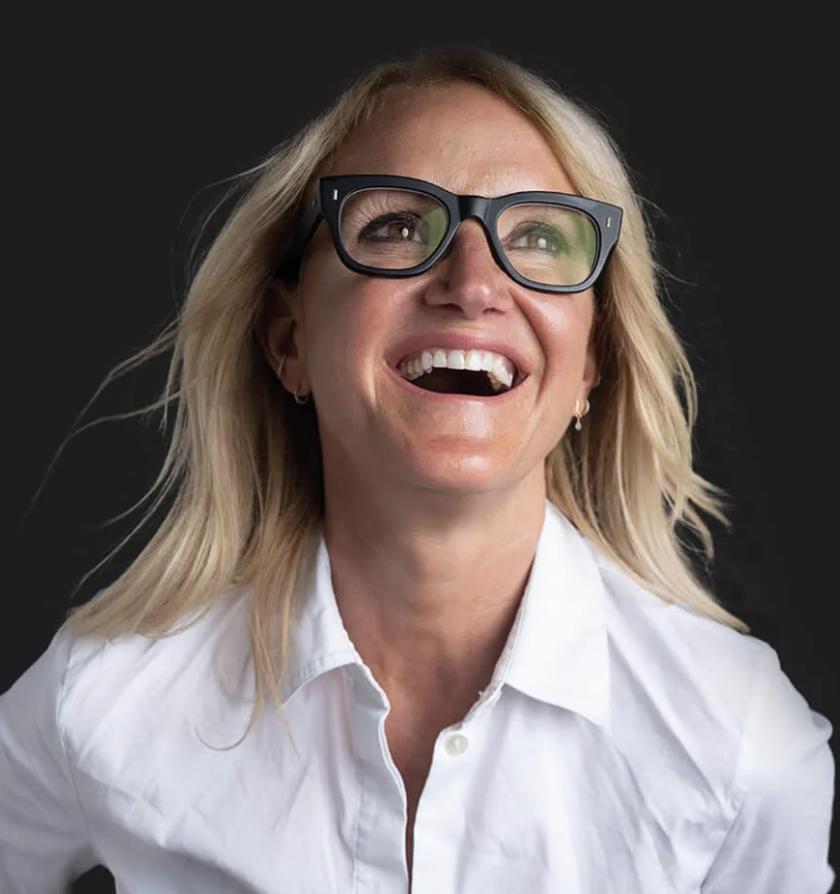
Mel Robbins
Mel Robbins is a self-help star who built her empire on 5 seconds of wisdom. Robbins has seemingly replaced Rachel Hollis in the celebrity mastermind circles who love to remind you they're probably in a private jet on their way to Napa together RN, planning their next launch cycle 30,000 feet up. Robbins recently used Dave Hollis' death as an opportunity to promote her podcast because, apparently, nothing is sacred.
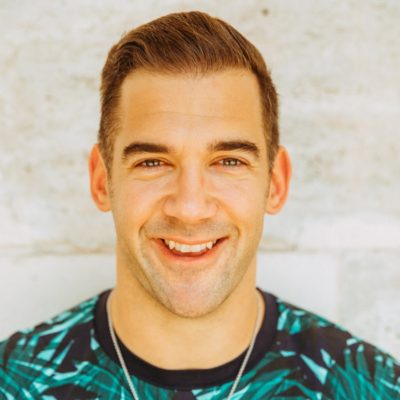
Lewis Howes
Lewis Howes, the man famous for sleeping on his sister's couch before thinking and growing rich, started as a LinkedIn sports marketer and today, is an expert on everything. Just ask him! Howes doesn't do hows any more; he is the poster boy boss for trading in the substantive parts of his offers for meandering thoughts on "greatness." What an upgrade!

Richard Branson
Richard Branson is a hologram of a rich guy who looks great in a "Look, ma! I'm on an island!" selfie (available for weddings and birthday parties). When not launching dick rockets into space to prove to Jeff Bezos and Elon Musk that he's still got it, Branson tolerates dickfunnels running around his private island, pretending they're friends with him. If you're young and blond, he'll even let you kiteboard on his back!

Jenna Kutcher
Jenna Kutcher is mad at me. (Don't believe me? I own the domain! JennaKutcherIsMadAtMe.com!) Kutcher once bought a camera on Craigslist and voila! She inadvertently released Dean Graziosi into her life like a genie from a bottle. Kutcher asks hard-hitting questions like, "How are you, really?" but is too busy monetizing her kids to hear your answer. And oh! Didya hear? She's a health coach now! As of 2023, giving up mac 'n' cheese and installing a sauna in your bazillion dollar home qualifies you to advise Internet strangers on their wellness! Comment HEALTH and she'll DM you.

Jasmine Star
Jasmine Star is another hat-donning photographer turned marketer. Known for asking potential contractors to take on free projects to "audition" to be her A players and asking subject matter experts to share their knowledge with her audience in exchange for "exposure."
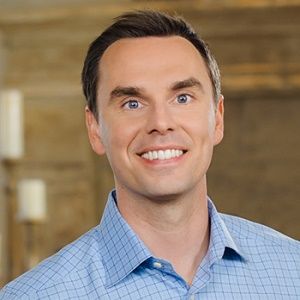
Brendon Burchard
Brendon Burchard is the "world's #1 high performance coach" but I have it on good authority that he's actually #1 at being an expert scammer. Burchard is currently running ads designed to shame you into working harder at coffee shops. Loves Tony Robbins, long walks on the beach, and having staring contests with himself in the mirror. (Fun fact: he hasn't blinked once in 46 years!)
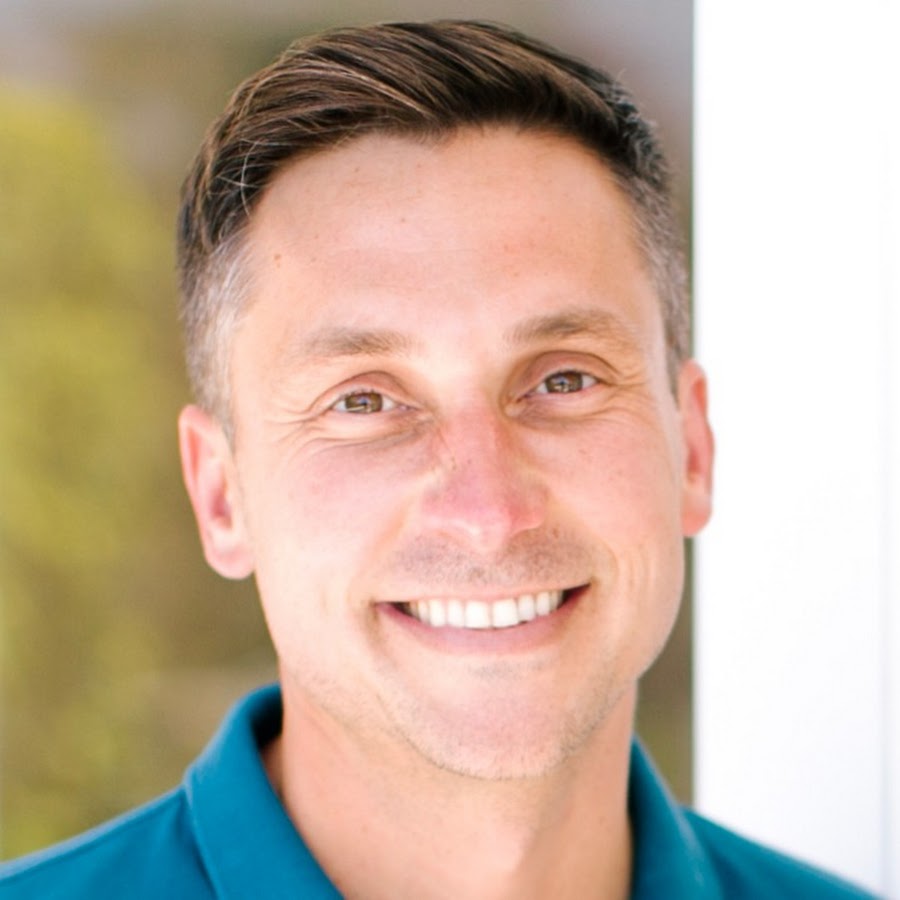
James Wedmore
James Wedmore was, at one time, rumored to be Qanon. But, fact checkers revealed he is simply a mediocre Trump enthusiast. Speaking of mediocre, he's also a business coach, I guess! His "Business by Design" program will change your life. (As long as the life you long to live involves pretending to be friends with rich people so they'll agree to putting a testimonial on your website.)
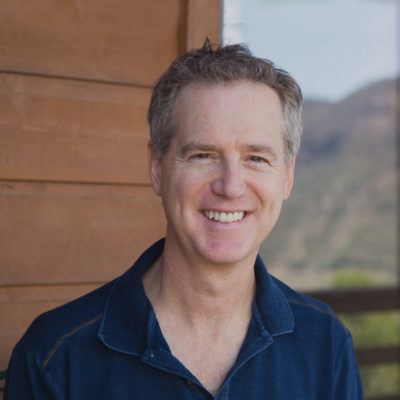
Jeff Walker
Jeff Walker is known for his "Product Launch Formula," a step-by-step guide to exhausting people into giving you their money and regretting it immediately. (Not to be confused with Jerry Jeff Walker, "Cosmic Cowboy.")
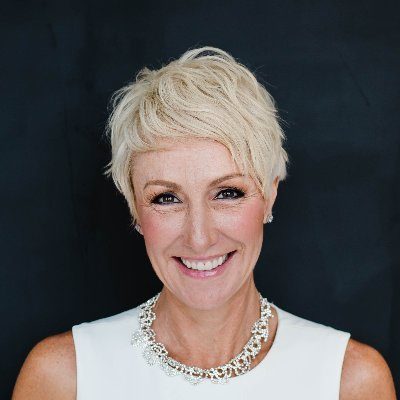
Brooke Castillo
Brooke Castillo, founder of The Life Coach School, has shaped the life coaching industry with her ethos of how everything is in your head. Forget systemic stuff! If you're sad, it's probably your fault. Recently, Castillo cut a slew of contract coaches with messages asking them to EMOJI respond to confirm receipt. Many of her former students, contractors, and employees have shared of the "toxic" and "cult-like" (their words) environment she cultivates. Castillo is known for silencing such reviews. How Forleo of her.
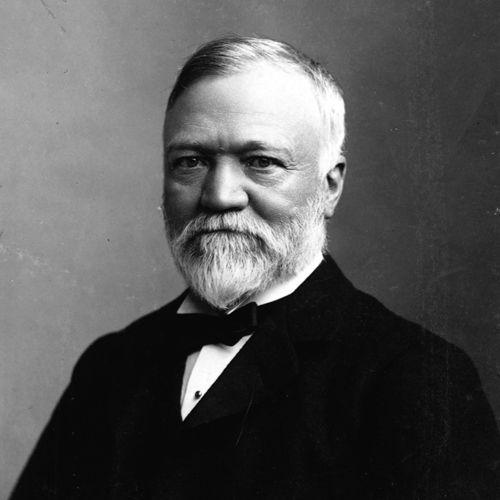
Andrew Carnegie
Andrew Carnegie, steel industry tycoon and self-styled philanthropist, believed in making money through any means possible. He didn't, however, believe in paying workers fairly because he thought they were too stupid to know what to do with the extra money. Instead, he created his own philanthropic institutions so he could make decisions about the best interests of the working class on their behalf. He was the paternalistic dickfunnel daddy of the early 20th century.

Matthew McConaughey
Matthew McConaughey is a life coach now! He launched his "Roadtrip - Highway to More" program on ClickFunnels, flanked by Tiny Tony Robbins and Uncle Dean Graziosi (they had Marie Forleo take the pic for posterity). For only 4 payments of $150, you can watch McConaughey play the drums and drawl at you about authenticity in front of an oversized stoplight prop that he stole from Hollywood.
Mentioned in this episode:
Episode Transcript
Rachael Kay Albers: Before we start today's show about ClickFunnels to hell, clickbait, and moneyball...
Moneyball is where leaders like Mark Joyner, Marie Forleo, and Jasmine Star and so many more look for “A players” to join their teams — often asking them to “audition” with free projects and invest hours of unpaid labor just for a chance to work on a winning team.
And speaking of teams, just a few days after we recorded this, another famous name — Brooke Castillo of the Life Coach School — abruptly ended contracts with many of her coaches, asking them to reply by EMOJI to confirm they understood that they had been cut. In the days that followed, I received numerous messages from former Life Coach School employees, contractors, and coaches who shared about their experiences working in what they called “a hellscape” and “the most toxic culture I’ve ever witnessed.”
Other messages described the “predatory and unethical marketing” they witnessed behind the scenes of what one former employee called “a company 100% run like a cult.”
These sources asked to remain anonymous out of fear of retaliation from Castillo, who is known to be litigious. One person wrote that “keeping people insecure and afraid is deliberately cultivated in that culture.”
The Life Coach School is also known for perpetuating an ethos that any harms an individual experiences — whether working with her or in the world — is evidence of their mindset and failure to think positively. In other words, if you speak up about harm in her organization, you will be told that it’s in your head and you have the choice to think your way out of the problem.
And this overlaps with the Tony Robbins ideology that victims of abuse who speak up are, in his own words, “using a drug called significance to make yourself feel good.”
In 2018, at his Unleash the Power Within event, Robbins said these words to a woman who challenged him about his thoughts on the MeToo movement and questioned why he praised a CEO accused of sexual harassment. Robbins physically intimidated her in front of a crowd of thousands, while ultimately suggesting that systemic violence was actually an individual mindset problem. He went onto say that men are the real victims of MeToo and women who speak up are hurting themselves.
Robbins has since issued a half hearted “apology” once these statements hit the press, but it’s worth noting in this episode as we discuss a culture that spans the entire Online Business Family Tree, where people are told their pain is their fault.
This is why I was so passionate about making this series with Lisa — not because we’re just two haters who love to snark on celebrities — but because we’ve witnessed decades of harm at the hands of these leaders, who reinforce systemic oppression, sell to their audience’s trauma, and then tell them it’s their fault. As we discuss in this episode, the Online Business Family Tree relies on and reinforces the white supremacist capitalist patriarchy. But if you ask these leaders about it, they’ll tell you it’s all in your head.
To understand marketing history is to understand ourselves and our culture — marketing is the fuel for the engine of capitalism. Let’s take a trip through time, so you can be a more informed consumer and, hopefully, a more ethical marketer. And if you’ve been harmed by the members of this family tree, I hope you feel seen and know that you are not alone.
My guest — Lisa Robbin Young has 30 years of business experience as a coach and creative entrepreneur: she is an award-winning speaker, best-selling author, and accomplished musician with multiple albums to her credit. You may even recognize her from the Disney+ show “Encore.” She is also the host of the “Creative Freedom” show. Lisa specializes in helping creative entrepreneurs build a business that works for how you’re wired to work.
Now let’s pick up where we left off in Part 2, where we were last discussing how Dan Kennedy, Mark Joyner, and Russell Brunson popularized picking on their audience’s pain points, marketing through shame, fear, and FOMO, which takes us straight in today’s discussion about ClickFunnels to Hell.
OK. This is fascinating. So, Russell Brunson is over here selling his “how to make your own potato gun” book on eBay…
Lisa Robbin Young: So he'd already been studying junk mail and Dan Kennedy in the offline world and he brought his potato gun to eBay and he was doing sales pages on eBay and decided that there was really a great opportunity in the Internet world. Kind of like Yanik Silver did – but they were in two different parts of the world. And so Russell Brunson is like, “I need to learn more about this Internet piece. Who's the person to learn from about the Internet piece?”
Mark Joyner was the godfather of the Internet. He invented the first tracking pixel – you're welcome. He developed the first eBook, which is basically a PDF kind of construct. He was the pioneer of that. So of course, Russ is selling this eBook PDF thing on eBay. He goes to the master and says, “Teach me your ways. I am moldable.”
And Mark had a series of courseware – he had all of Simpleology 101, 102, 103. He had “Mind Control Marketing” and a bunch of other things that he was offering and Russell was just a sponge and he took all of this stuff in and synthesized it and developed his own business using Internet marketing strategy. And he became a very successful Internet marketer. And Mark was like, “What are you up to? What are you doing? Let's partner together. Let's make lots of money. I've got the brains, you've got the looks,, let's make lots of money,” right?
And so that's where Russell gets his launch and Mark ends up creating his own sales funnel software about the same time that Russ is creating his. And so they're having conversations back and forth about what are you doing and that's what ultimately becomes ClickFunnels for Russell over here and then Mark goes on and does his own thing.
Rachael: So Russell Brunson was studying at Mark Joyner's feet and Mark Joyner – you've called him a few times —
Lisa: The godfather of the Internet.
Rachael: Why does he have that title? Tell us more about Mark Joyner and his “mind control marketing.”
Lisa: Well, ok, so he's more than mind control marketing. I want to be clear on that. But this is a guy who came of age at the early onset of the Internet and he's always been a futurist and I don't know if that came out of his military background or not. But while he was in military special forces, they did a lot of that mind control type manipulation to get prisoners to talk and all of that kind of stuff.
And he came out of that and found his way into the land of the Internet, right? He invented the first tracking pixel, he invented the first prototype of an eBook…and when I came into his company, and I worked with him for about 15 months, this is where I learned about Moneyball, right? “We want A players but we want to pay them as little as possible. We'll pay them, but we want to pay them as little as possible, and we want the absolute best out of them.”
And that's a mindset that has trickled down through – if you look at the job descriptions that the Marie Forleos and the Joe Polishes and the Rachel Rodgers of the world put out there – they're all talking about, “We want A players…we'll pay commensurate with your experience” in very small brackets.
But, in addition to mind control marketing and Simpleology,, he had these other courses – how to become a bestseller…how to become a world class affiliate marketer…
And these programs were basically about gaming the system. This is how I actually got my very first YouTube video. Before I started working for Mark, I was a little bit of a disciple and learning at his feet – very much like Russell Brunson. Like I said, I'm gonna tell him myself today. And he held this contest…
Rachael: Lisa, is that what you call him Russ? Because you and Russ were just hanging out together in Fiji?!
Lisa: I just never – Russell is just hard for me to say and people that I know have called him Russ and I've just never called him Russell. So that's really what it boils down to.
Rachael: It's hard for me to say, too, Lisa. But for different reasons – haha! So Mark Joyner has a contest…
Lisa: Mark Joyner has this video contest to promote Simpleology. And so he puts an email out to his list and says, “Hey, we want you to do a video and there will be prizes.” And I don't even remember what the prizes were. But I was like, “I am totally gonna make a YouTube video. I don't know how I'm gonna do it because I don't have a camera, but I'm gonna make this shit happen.”
Rachael: Was it the car? Were they selling the same car? Was the prize the same car that was making its way through all the leaderboards?
Lisa: No, no no. I'm sure it was Simpleology courseare or something like that.
Rachael: By the way, is Simpleology the ClickFunnels alternative?
Lisa: No, Simpleology was…there was a book about how to be successful and make your life really simple. And there's several different aspects of Simpleology. So 101 is about prioritizing your day and how to get yourself organized. And he's got a whole online dashboard that helps you prioritize tasks, which I thought was really brilliant.
My linear brain was like, “I am all over this. This feels really good.” And then he released other courseware along the same lines of – you go one day at a time, you make a commitment to the program, and you learn what you need to learn that day. And then about halfway through, you do a review. And so the courseware was actually instructionally designed very well.
He came from a military background. So of course, it was going to be designed really well. And then from that core audience of people that he marketed on the idea of “do more in a day than you've done all week,” or something like that, right? Like, how to be really productive and efficient…he also did the same thing with money and he did the same thing with mindset and he did the same thing with a bunch of other stuff.
And then he started rolling out other courses, like “how to be a better artist” and “how to become a bestselling author.” And they were all about gaming the system. So, back to this video, right? Whoever got the most views, won the big prize. Well, the guy who ended up winning the most views – it wasn't me – was this dude who capitalized on all of the keywords in his title that would get people to click, right?
So this is the whole clickbait thing, right? This was early clickbait. And I think at the time Jessica Simpson was hot and something was going on in politics. And so his title was something like “Jessica Simpson. Hot Politics.” Something, something, something. I don't even remember. And he got thousands and thousands of views.
So he won the contest, but his video was crap. Meanwhile, my video was pretty good. It's still on my YouTube channel. It's the very first YouTube video I ever did. It is still there and I did not delete it because I believe in showing the trajectory, right? So I had long dark hair. It was, it was the whole thing.
Rachael: Whoa! This is the first I'm hearing this folks and I am rushing to YouTube…but finish this before you watch it, okay?
Lisa: But that's where I learned about this whole, “If you want to win, you've got to game the system.” I don't necessarily subscribe to the notion, but I know that a lot of people do it, right? And so he became the master of gaming the system in order to succeed.
His training on “how to become a bestselling author,” his training on “how to sell more music,” which I think Armand Morin probably tapped into when he launched his country album that was like number 10 on the Billboard charts…
Rachael: Wait a minute, you gotta back up the truck…who is Armand Morin? We've got Mark Joyner who's created an empire out of teaching you how to game the system, whether it's through a sales page or through a bestseller or through a YouTube or through a country album…
Lisa: Armand Morin is another one of these guys in The Syndicate with Frank Kern and those early adopter Internet marketer types, right? The mastermind where they scheduled out their promotions so that they didn't overlap with one another.
He was part of that community of folks and he got a wild hair that he was going to prove to the world that anybody could game the system and get a number one country record, right? So he partnered with a guy that I met in Nashville – so I can corroborate the story through him – and they did some keyword research on what were the best names to use for his country persona.
And he basically went and recorded a pretty crappy country album. He did the photo shoot with him in a cowboy hat – the whole nine yards – and they put this record up for sale on Amazon and iTunes or whatever. And he went to his list again – a very large 100,000+ following list – and said, “Hey, guys, I'm gonna teach a workshop on how my record is going to become a number one record in the nation. All you need to do is go buy two copies of this record. Show me your receipt and I will teach you all the behind the scenes of how we got this record to number one,” right? And Armand Morin was a guy who was teaching $500-$1,000 webinars. So 40 bucks for two copies of the CD was a no-brainer offer for the people in his audience who wanted to learn at his feet.
So, of course, 50,000 people buy your record on day one – even if it's crap – your record is gonna rise on the charts and it did. And there was somebody else and I don't know if it was Joe Diffie or some bona fide country artist who had a record out at the same time and Armand Morin's record beat it and knocked it out of the top spot and it was number one for a couple of days, I think. It was like number three or four on the billboard charts. The record's still on Spotify. And I mean, it just blows my mind.
This is how you game the system if you want to be successful. You capitalize on the audience that you have and you can sell anything if you've got an audience. And that's what bothers me about so many of the Internet marketers turned authors. You want to talk about Russell Brunson and his book or Ryan Levesque’s “Ask” book – they're basically glorified business cards, but they sell paper and so publishers want them and then people get caught up and say, “I'll buy the book.” Or they use the bookselling strategy of, “Just pay for the shipping and handling and you can have the book for free,” which then also elevates the book sales, right?
They know the strategies to sell the stuff and game the system to become the celebrity of whatever they want to do and they don't care how it happens because – we were talking about integrity earlier and different people have different ideas about what's acceptable and ethical and OK. And because that's their definition, they're gonna go ahead and use those tactics.
Rachael: We got “fake it ‘til you make it” and we’ve returned to the idea that all of these people are just selling how to sell the illusion of value even when it's not there. And Armand Morin is a perfect example because, as you said, he wasn't teaching people “how do you cultivate your craft as a singer and put together an amazing list of songs?” Or “how do you partner and collaborate with other songwriters and musicians?” and blah, blah, blah, blah. No, he was like, “How do you tap into an audience and sell them an illusion to get a hit country album?” That is what this comes down to and they faked it and then once they made it once, then what they go and do is say, “Now I'm going to use this as a case study for why I'm such a great business person.”
In reality, what you are selling is an illusion. You are selling snake oil.
And I think it's worth saying – where does the term “snake oil salesman” come from? It comes from the 1800s when Clark Stanley, who was known as the Rattlesnake King (and that was a self appointed title) goes around telling the people that he studied with the Hopi nation and they taught him how to make their secret rattlesnake oil.
And, so at the Chicago World's Fair, he would decapitate rattlesnakes in front of the audience and then boil them in a vat and skim the fat off – or whatever happens when you boil a rattlesnake. I can't say I've ever tried it. And then he'd put it into a jar and sell it based on all of its healing properties.
A couple of things here. One – there is actually a thing called snake oil and it comes from Chinese water snakes. Snake oil was brought over by immigrants who were building the railroad. Ok? And because of the Omega 3 properties of this one specific snake, found in a particular region of the world, there are proven to be benefits that come from that snake oil.
But Clark Stanley wasn't selling that. And he made up the story of, “Oh I learned this from the Hopi Nation and they gave me the secret recipe and said, please Clark Stanley go out and give this to the world.” That is a lie. That is a myth.
But not only that – the rattlesnakes that he was using to create this snake oil didn't have any of those anti-inflammatory properties. And when what would ultimately end up becoming the FDA got their hands on the snake oil and they tested it, they found that there was no actual snake oil in the bottle. It was like beef powder, chili powder, and a bunch of shit that you could buy at the corner store for a penny. So not only did Clark Stanley appropriate the concept of snake oil from another culture, which is a recurring theme that we've seen all the way to Tony Robbin’ fire walks. (And he didn't even invent that either.) But then he wasn't even selling snake oil – he was just selling a bunch of shit that he sprinkled into a bottle and mixed with water and put a label on and then would go from town to town with his marketing pitch for all of the pain points. He could heal your cancer, your diabetes, your kidney problems, your conjunctivitis – he said that all of that could be cured with snake oil.
So it's important for us to know – where did the concept of snake oil salesmen come from? It comes from yet another grifter who appropriated the concept from another culture and then didn't even sell that. He didn't even sell the snake oil itself. What he was selling was the dream of what you said earlier in this episode. We want to believe. We want to believe that it's as easy as buying a bottle or an elixir or taking somebody's seven steps to seven figures.
Wouldn't it be nice if that were true? And when they back it up with such a wonderful, persuasive sales pitch and they've got an army of their friends that look like you or that you wish you could aspire to be…when all of those things come together, it makes you want to believe in the snake oil even though deep down in your heart, you know that it can't possibly be true.
So we’ve got Mark Joyner, godfather of the Internet, who created all of these series on how to game the system. Armand Morin takes those and creates a best selling album of garbage country music. And you were talking about The Syndicate. So in The Syndicate, there was Frank Kern – and what did Frank Kern do? What was his claim to fame?
Lisa: So Frank Kern actually started, I think, selling credit card machines or something like that in his early days and he wanted to find an easier way to make money. So he came online and found some old copywriting courses. I don't know where he got them from. I don't know that story. But he found some old school copywriting – those old sales letters – and he started mass emailing and spamming people: “Buy my stuff! Buy my stuff! Buy my stuff!” using these sales techniques.
And it worked because it's terribly effective and he made a crap ton of money. And so when he started to really rise and hit seven figures, he was this surfer dude and he was trying to play that lifestyle of, “I'm this guy on the beach” or whatever. You look at his website now and he's a completely different, cufflink wearing, suit and tie, “My beautiful wife and my fancy dog” and all of that. Again, people evolve, right?
But he admits that what he was doing was barely legal and that's how he built his fortune. And now he teaches people mindset triggers and how to get people to sell based on what psychology says they'll do next. So he's gone from selling stuff to selling marketing and again, very effective at it. But when he was part of The Syndicate and The Syndicate was this loose connection of high-powered, influential Internet marketer people who would gather together, mastermind style. But they also just had these ties because they were all over the country and coordinated all of their launches and would just go down the list promoting each other. Passing that car around that we talked about earlier – pass around the same car from one affiliate leaderboard winner to the next.
Rachael: And Frank essentially invented spam.
Lisa: I like to say that he's the reason why the CAN-SPAM law exists because he did it. And you know, everybody else started seeing that it worked. And so they were doing it and that's when spam really started to proliferate, right? And so the federal government enacted CAN-SPAM.
Rachael: And so just like Clark Stanley was one of the big reasons why the FDA even became a thing – because you had, not just Clark Stanley, but all of these patent medicine sellers. They were all selling their magical cure-alls for whatever ails you, whatever your pain. What's your pain point, Lisa? My snake oil can cure it. And that's ultimately what led to the FDA. In the same way, Frank Kern invents spam and that leads to the CAN-SPAM act. Yeah. ‘Round and ‘round we go, where we stop, nobody knows…
Lisa: And because he elevates himself to this seven figure status, you know, all these people are like, “What are you doing? How can I do this?” And he goes to a Tony Robbins event.
Because that was the thing that people with influence did. You went to a Tony Robbins event. Marie used to go on and on about how she loved to listen to all his tapes and really got inspired and all of that. And so the thing to do was to go to a Tony Robbins workshop, to go participate in that world.
And somehow the two of them got to talking. Tony Robbins was paying attention to – here's this guy with all this money – and that's where that whole New Money Masters program came. Because Frank was like, “Dude, you need to get on the Internet marketing train.” Because at the time, Robbins Research International was not online.
He was still selling tapes and workshops. And he says, “Oh wait, there's a whole new audience of people I can tap into. I'm going online. And I'm gonna pay you to teach my people how to do that.”
Rachael: So if Mark Joyner was selling his mind control marketing, in the early days Tony Robbins was selling his own version of mind control – how to use neurolinguistic programming (NLP) and hypnosis to get anything you want. People remember his cameo in the movie “Shallow Hal,” which is one of the most disgusting, fatphobic pieces of garbage that Hollywood ever produced.
But if you've ever seen this movie – essentially Tony Robbins hypnotizes Jack Black into seeing people's heart instead of their bodies because Jack Black's character in this movie, “Shallow Hal” is extremely shallow. All he wants to do is date hot chicks and he always gets burned. So Tony Robbins meets him in an elevator and hypnotizes him into – instead of seeing people’s outward appearances, he sees their inner self.
Tony Robbins is doing all this hypnotic bullshit – mind control – but he's doing it offline. Meanwhile, The Syndicate is starting to bring all of this mind control, sleazy, tabloid clickbait, pain point, shame-based marketing onto the Internet. This makes Frank Kern rich after he spammed his way to millions. Frank Kern shows up to a Tony Robbins event – because this is kind of like a status symbol – and Tony Robbins pays attention to him because he's got wealth and influence. And Frank's like, “Tony, you know what you should do? Ruin the Internet by getting on it.” Is that right? Am I paraphrasing this correctly?
Lisa: It sounds about right.
Rachael: And Amy Porterfield came out of Tony Robbins organization. So Amy Porterfield worked for Tony and she did some of his marketing – she was like a low level marketeer for the Robbins Industrial Complex.
But what you're saying is Frank Kern comes and whispers into Tiny Tony's ear about a little thing called the World Wide Web. And Tony’s like, “Aha! I found my way of taking over the world.” And so he creates something called the New Money Masters. Is that right?
Lisa: Yeah. And I don't know all of the people who were involved in that. But before that, he was known for his tape programs and his profiles of success and what makes a successful person. And so he figured, “Let's do the New Money Masters and talk about Internet marketing so that I've got a way to dip my toe into this market and legitimize what I'm about in the online space by interviewing successful Internet marketers like Frank Kern and John Reese and Marie Forleo and a host of others that I don't know because I have not seen the whole thing, but I know that those people were interviewed…
Rachael: Don't do it, because he'll hypnotize you! Don't watch it, Lisa!
I always say that all roads lead back to Tony Robbins. But really, they don'. Like all roads actually lead back to Frank Kern and Mark Joyner and Dan Kennedy. And then we go back and back and back in time and then they go back to Napoleon Hill, which goes to Henry Ford and then we go back to Benjamin Franklin.
So all roads lead back to American capitalism.
So Tony Robbins discovers the Internet. It wasn't Al Gore, it was Tony! I'm kidding. But Tony Robbins discovers that the Internet exists. He creates this video series, the New Money Masters and he's interviewing all of these rising stars of online marketing.
And one of the videos that I have watched is him interviewing a little baby Marie Forleo. What's interesting about this is that he then became the cross pollination king. But in the early days, the Tony's online marketing business model from was, “I am going to tap into somebody with an existing audience and I am gonna piggyback ride them to success. I am gonna bring my teachings to these new folks,” which is also kind of the Napoleon Hill way in the sense that if Napoleon Hill went town to town scamming people and then as soon as they started to get wise to him – because Napoleon Hill had lawsuits, he had murder charges, he was a criminal who was barely escaping the law going to the next town that hadn't heard about him yet and then doing it all over again. Ultimately, that has been the Tony Robbins model, right? He goes to an audience that doesn't know his bullshit yet and he piggybacks on the trust of the person until they're saturated with it.
And then he moves on to somebody else, right? So he started with the Frank Kerns and the Marie Forleos and then he eventually turned to the Jenna Kutchers and now today that leads us to the Matthew McConaugheys, right? And all of the other people that he's hitched his grift wagon to over the years. But it all began with The Syndicate and Frank Kern and the New Money Masters. Am I getting this right, Lisa?
Lisa: Yeah. That's it. And this thing about piggybacking on other people's audiences is still that JV relationship, right? Because then when Tony puts out a new book, all these people are going to interview them on their shows and then he features them in those things. And so then they can say, “I was in Tony's book,” and it's this back and forth of self elevation, right? Like, “I elevate you, you elevate me.”
So that rising tide that’s lifting all the ships in the marina – there's only two or three ships in the marina, right? That's the problem. Unless you're a superstar celebrity like Matthew McConaughey and then you can waltz your way into these relationships because they want to be in your world and they're going to get their hooks into you.
Rachael: Yeah, Marie Forleo is hoping that Matthew McConaughey will make her relevant again, right? Everything is figureoutable, I guess. We'll see. That's another book that really is just a big paper weight. If you've read the title, you've read the book.
That's what I want to go back to here because we were talking about Mark Joyner and Dan Kennedy teaching the tabloid / clickbait / pain point approach to marketing.
And then from there, Mark Joyner creates this whole empire of learning how to game the system in these various ways. And that all ties back to Mark Joyner's mind control marketing and his connection back to the military. And then you've got the Tony Robbins of the world coming into the game, popularizing NLP or neuro linguistic programming and hypnosis.
Essentially, this is another form of mind control. And then that paved the way for Russell Brunson to come in with his “how to build a cult / how to build an audience of people who will do anything you say.” And I'm not exaggerating when I say that Russell Brunson – that's the foundation of his message: “I'm going to teach you to become a cult of personality.”
And on page 2 of his book, “Expert Secrets,” says, “You know how I learned how to do this? By studying Adolf Hitler, Jesus Christ, and looking at how they quote built a movement.” Only a white bro marketer would have the audacity of comparing Adolf Hitler and Jesus Christ. And then saying that's how he learned all his business secrets. And if I've got an agenda, it is bringing to light just how absolutely terrible, awful, despicable, and disgusting it is that Russell Brunson has built a platform off of teaching people how to use mind control to build a cult following similar to Nazi Germany and all of the people that we've named today have co-signed this, have had him on their podcast, have blogged about how effective they find his book.
I learned about Russell Brunson from one of those Clickfunnels to Hell where you pay shipping and handling for a book – from Amy Porterfield! And she said he was one of the best entrepreneurs to teach you how to build a following. She's co-signing a man who is comparing building a business to building a regime.
But you can't really talk about Russell Brunson learning everything he knows from Adolf Hitler without naming Edward Bernays who was the father of PR – he's known as the father of public relations – but he's really the father of propaganda.
And I've got a whole episode about Edward Bernays who wrote the book Propaganda. And he was one of the original members of the Committee on Public Information, which was the first government institution dedicated to state-run propaganda. So Edward Bernays was part of that Committee on Public Information. Goebbels, who was one of the higher ups in the Nazi Party, studied American propaganda during World War I to create the strategy which would ultimately lead to the Nazi party's takeover of Germany and beyond.
And, so when we talk about Russell Brunson and ClickFunnels and how Russell studied Hitler. Well, actually, Hitler and Hitler's people studied Edward Bernays who ran one of the first state run propaganda efforts for Woodrow Wilson and the Committee on Public Information. So you want to talk about a tangled web, right?
All of this weaves into presidents and our government and it all goes back to American capitalism. So I'll put that little note in there. But if you want to know more, I have a whole deep dive episode on the history of propaganda. Check that out. It’ll be in the show notes.
Lisa: And this is a piece that we haven't really pointed to. But one of our followers on social was like, “Why are the people in this picture white? Is that a thing?” I'm like, “Yes, iit very much is.” Now, we said this earlier – that's not to say that patriarchy doesn't exist in heels, patriarchy doesn't exist in brown skin. It does. It absolutely does. And 95% of the time, it's because they've learned these tactics from these white folks.
And if we go back to the early masterminds – Ford, Edison, Firestone – racists. They were very unequivocal about it. They were racist. They didn't want “those kinds of people” in their world. If Tesla had come and said, “Hey, can I join you?” They would have been like, “Get out of here. No, we don't want you here. We don't care how smart you are. We're just gonna capitalize and, and use your ideas and we're gonna become rich,” right? And that trickle down storyline to the next generation and the next generation and the next generation to the generation – that’s where we're at now. And I think it's important to point that out. We're not just calling out white people but that's where a lot of this lies because that's where it started and it's rooted in systemic racism. It's rooted in problematic capitalism and you can't have this conversation without acknowledging that.
Rachael: Yeah, if we go back to the very top of this episode and the Prosperity Gospel and all of these tycoons, it's important to note that some of the early advertisers and the folks who built the advertising industry – many of them were Christian preachers turned marketers who knew how to move a crowd, who knew how to manipulate the masses, and saw an opportunity to make a hell of a lot more money in the secular world using these techniques that they learned by invoking the white Christian nationalism in their church messages. They just took that over into the advertising industry and said, “I'm now going to use these skills to make money for the business world because then that enriches me.” Isn't it convenient?
At the very same you have this message that to be closer to God, that God is smiling down upon you by giving you wealth. “God wants me to be rich. God wants us to buy things and be comfortable and all of that stuff.”
When we asked, “What did people want us to cover on the podcast?” Some folks did mention religion and MLMs and this is how that gets woven in. Russell Brunson is a part of the church of Latter Day Saints and that church does have a long racist white supremacist history, right?
And continues to have that legacy. And so, yes, it is no coincidence that most of the business leaders that we've named today are white people. And also tend to have a politics and a personal ethic that reinforces the white supremacist capitalist patriarchy. Let's just say it like that.
Oh man. So, we've got tabloid / clickbait / pain point marketing, which goes hand in hand with learning how to game the system, which was all of Mark Joyner's Simpleology, and then all of these folks in The Syndicate converge to cross pollinate audiences. Tiny Tony gets his entryway into the Internet marketing world at the same time that Russell Brunson is formulating his ClickFunnels software, which as we know was him essentially studying Adolf Hitler to learn how to sell to people. Cool story, bro. Love that journey for us.
And so this takes us to 2023. We're getting up into the modern times, but let's talk a little bit more about this cross pollinating of audiences because that is ultimately what Tony Robbins has now done for the last 15 years, right? He just finds a new up and coming influencer, creator, celebrity. You know, Marie Forleo had her own baby version of celebrity.
So he's like, “Oh, I'm gonna have her on the New Money Masters and now we're going to do JV partnerships and affiliate relationships with each other,” which leads up to today. That's exactly what he did with Jenna Kutcher, right? Him and Dean Graziosi see this woman with access to the millennial mom market. Jenna Kutcher is over here with just a camera and a dream. At least that's how she tells the story. And she's built this audience of hundreds of thousands of people. And Tony Robbins is like, “How do we keep our audience young and fresh? How do we get to the folks who haven't seen Shallow Hal? Howdo we get to the folks who don't know I'm full of shit? Jenna Kutcher is our gateway.”
She famously says that they brought her in – this is hilarious, speaking of the whiteness of this whole industry – Jenna Kutcher says that Dean and Tony brought her into their JV partnership… Dean Graziosi being one of these old real estate scammers who has multiple FTC violations and yet somehow people can continue to trust him to teach them about business…but Jenna Kutcher famously says that Tony and Dean brought her in to make their program – at the time, the Knowledge Broker Blueprint – more inclusive. So they brought her in and started to get in front of the Jenna Kutcher audience and they've now been JV partners for the last few years.
Lisa: That's the whole capitalizing on the personal brand, right? The corporation as personal brand versus a personality driven brand.
Rachael: Now, we finally caught up almost to the present. We're talking about Tony Robbins, Marie Forleo, Jenna Kutcher, Amy Porterfield. I'm tired, I'm exhausted. I'm scared.
Lisa: And we're really only scratching the surface of the names that are probably the most familiar. Like I said, I've been doing this for 30 years. There's a whole bunch more names that I could be dropping that you'd be like, “Who? I've never heard of them,” right? Because they're the puppet master behind the scenes that all these people have been learning from over the years, right?
And that's why for me – this is about how those who don't learn from history are doomed to repeat it and not necessarily in a good way. And so let's get the context, let's understand where these people are coming from, how we've come to this point. Because when we have that information, now we can start to look forward and go, “Oh, I see where that's headed. And I don't want to be part of that,” right?
Rachael: You know what? My hair has come down now, Lisa. My hair has come down. We're really into the weeds here. But just to review, we've talked about – going back to the myth of meritocracy and “pull yourself up by your bootstraps” and then the masterminds and the perceived success simply because of proximity, which is what happened with Napoleon Hill.
Then we've got the JV partnerships which begat the affiliate model, which ultimately leads us back to the “fake it till you make it” and selling marketing instead of selling business principles. And how all of these folks are investing so much in a shiny top of funnel “how can I prevent you from asking for a refund or how can I shame you or dazzle you into trusting me?”
Partially because “everyone trusts me” or at least it looks like it on the surface and then that parlays into the whole Glazer Kennedy, Mark Joyner, mind control / tabloid / clickbait / pain point marketing into learning how to game the system. That was the next step. And we've got propaganda and NLP and hypnosis. This is how you trick people into trusting you when you have nothing to sell other than the image and the illusion of success.
That's what this all boils down to. We get to today and the age of cross pollinating audiences, and we're almost to my favorite topic, which is the age of the personal brand.
So when you see all these folks in the room together, understand why they’re in the room together. Not because they're friends, not because this is who they like to hang out with. I’m sure there are maybe some relationships there amidst all of this. But why did they go to Richard Branson's Island? Why are they all together in Napa Valley? One of these masterminds happened earlier this year and Brendan Burchard was there, Amy Porterfield was there, Mel Robbins was there, Jenna Kutcher was there, Dave Hollis was there, Heidi Powell was there…
And why do I bring Dave Hollis into this conversation? Because what was so disturbing about that particular mastermind that happened earlier this year – with everybody taking photos and then putting on each other's Facebook and Instagrams and tagging each other in reels and stories – is because shortly thereafter, Dave Hollis passed away and Mel Robbins who, you know, was “friends” with him, used that as an opportunity to create a bunch of content promoting her offers and her show and her podcasts. I believe two days after Dave Hollis died, she wrote this eulogy email for him and the whole top of the email is about the shock of his death. Well, we know that people are going to open that email. She knows that people are going to open and read that email because many people in the online business personal development space were shocked at his death and it is very sad. He leaves behind young children. It is tragic. But Mel Robbins monetizes it. You want to talk about pain points? Mel Robbins uses this as the opportunity to write an email about him. And at the end of the email links to a completely unrelated podcast: “And if you resonate with this message, you'll really like this podcast interview that I did with this completely different person. Click here, click here, click here.”
And I just found that absolutely deplorable and it wasn't the only time that she did that. She shared Dave Hollis content for several weeks, all while using it as an opportunity to promote books and shows and programs and – let's just remember that all the folks who were at this very highly publicized mastermind are there because they're cross promoting and cross pollinating audiences with each other and they're promoting each other's work and they're creating this sense of aspiration.
So when you take a step back and say, “Do I really believe in this? Is this snake oil really gonna cure me?” And then you see all of these leaders in the room together, all promoting each other's work, it starts to boggle your brain. Talk about hypnosis, talk about mind control. So you think, “Well, my gut must not be right because Mel Robbins wouldn't be promoting Jenna Kutcher, who wouldn't be promoting Amy Porterfield, who wouldn't be promoting Brendan Burchard, who wouldn't be promoting Tony Tony Robbins, who wouldn't be promoting Russell Brunson, if there wasn't to the something to this snake oil of theirs.”
Lisa: And a little known secret of some of these groups is that they have a promotion requirement. Like, “if you're gonna be part of our mastermind group, you've got to promote other people's stuff, you've got to promote the other members.” And so, for some of these people it's an “I’ve got to do this. How can I do this in a way that’s not as smarmy as possible? How can I keep it as clean as possible?”
But you’ve already made the commitment, but you don’t disclose that. And that's when the FTC started cracking down on – you've got to disclose when you're advertising, you've got to disclose when you've got an affiliate relationship, you've got to disclose when you've got a conflict of interest. You've got to disclose that because otherwise you're gonna end up like Kim Kardashian up the creek being brought up on charges for promoting crypto. You've gotta be legit, right?
Rachael: And yet they don't, right? And they aren't. I just saw a week and a half ago that there are some new FTC standards in place where you have to disclose in very overt ways because folks have been doing things like – they'll just tag the person or even just putting hashtag #ad anymore is not enough. So we'll see. We'll see, I don't know how you enforce the massive scale. The FTC just isn't funded to the point they could possibly ever enforce that.
So, just like Frank Kern was staying one ahead of the curve before these spam laws come into place, they're gonna make their fortunes, not disclosing. They're gonna sell these illegal methods down the creek to everybody else at a time where disclosure rules were different. So your average person doesn't have the opportunity to scam people like that anymore.
Lisa: But if I did it, you can too! That's the way, right? “If I did it, then of course you can do it because I'm just a regular Joe,” right? And that's the hypnotic effect of these personal brands that become personality-driven corporations because they still present themselves as an everyman or girl next door. “I'm just like you and if I can do it, you can, too.”
And you don't see what's going on behind the scenes. You don't see what's going on under the surface. You just see the figurehead showing up being the face of the brand when the brand now consists of 25 minions in a back room doing sweatshop labor. Gary V shows up and he's got people filming him from every different angle.
They go back and slice and dice all this stuff up and they're putting all this content up. They're the ones that are doing all this work and he just gets to go live his life. And that's how he can afford to be everywhere and be so pervasive and capitalize.
You are not Gary V. I say this all the time. You and I, we are not Gary V. We do not have those minions.We do not have those resources.
Rachael: Nor do we want them! We don't want minions. No.
Lisa: And it's ridiculous of us to hold ourselves to the standard of, “If we want to be successful, we have to do what Gary V does,” because you can't. Gary V isn't Gary V.
Rachael: Marie Forleo isn’t Marie Forleo. And that's something that we can actually see very clearly now. You mentioned earlier about the fallout that happened in B-School three years ago in the wake of George Floyd's death. There were lots of conversations happening in the B-School Facebook group and folks wanted to talk about race in America. And they wanted to talk about systemic violence and they wanted to talk about how this affects and creates barriers and obstacles to them implementing the B-School dream.
Lisa: There's some things that I can't say and I can just let you roll but what I can say is, the fallout was strong enough that…the Facebook group wasn't originally part of B-School. Marie didn't want to have a Facebook group. She didn't want to have anything to do with any of that stuff. And one of the members of B-School said, “I want to create this. I will facilitate this. I will take care of it.” And, at some point over the years, Marie said, “Well, if we're gonna have this, it really needs to be under my umbrella, we need to manage it. I will compensate you for managing the community or whatever, administrating and facilitating and all that.” But at some point, it gets rolled into B-School.
And as you pointed out, with the Black Lives Matter movement and people saying “let's not be political” and all of the spiritual white women in this community going off about, “Let's keep it positive and let's not have any toxicity,” and the people of color in the community saying, “That doesn't fly for us. This is really impacting…this is real for us and you can't just gloss over it.”
And Marie's response was, “Let's shut off the comments. Let's just not talk about this. Let's turn our attention back to B-School because that's what this community is for.” And that's what gave the segue for Rachel Rogers. She was very upset and she did this Facebook live about, “This is some BS and we need to do things differently.” And she had just recently launched her own mastermind course program that I had stepped into – that she was planning on keeping very small and intimate at 300 people, like: “300 of my closest friends.” And when this video went up, she had just closed the doors and people came out of the woodwork who were looking for a breath of fresh air. Here is a woman of color, speaking her mind and leading the way and being a different example.
That's what they were looking for. Let's be clear, that's not what they got. Rachel stood up and said, “We should all be millionaires,” which is a very sexy and appealing title. Yes, we should. And, “I'm here for the people of color.” I'm here for the marginalized. Give me your tired, your poor, your huddled masses, yearning to break free. Let them come here.
But she had just closed the doors to her program. So she decided she was going to reopen the doors to her program and like 1500 people showed up, cash in hand, and she was not going to turn those people away, right? But in the process of doing that, there were a lot of problems inside her organization because she was not prepared for that kind of growth.
And instead of owning the issues that she had and really being a town hall persona for this community that she had started – who was looking for that intimacy, who was looking for that realism, was looking for that connection – she showed up and said, “Don't ever shame me into playing small. I'm gonna do what I want to do. And I just had my first million dollar month. Let me show you how.”
And inside her organization it started to fall apart and you can go on Glassdoor and you can look up Hello Seven. And you can see the reviews from people that have worked with her. I'm not saying anything that's not public knowledge. People went in there with hope in their hearts of, “This is a different way,” right? This is a person who's doing it differently.
And they had the realization that she's not doing it any differently. And that's why I say that this whole idea of “we don't bring people down, we only lift their voices…we don't call out bad behavior” does a disservice to all the people who showed up in that community to pay $500 a month at that time. I don't even know what it is now. We paid $500 a month to come learn at her feet when she was teaching the same tactics and strategies that these bro marketers were teaching. When you ask, “Hey, your job description isn't clear. Do I pay for this audition when I’m asking to hire somebody?” They say, “Well, you know, we don't have a policy on that but if you want A players…” and I'm like, “Okay, but I want to know what your policy is on this. What is your position as a business owner? That's why I'm asking it that way. I want to know if this is an integrity for me.” And they say, “Oh, well, you've got trust issues. So we're gonna cancel your membership. Bye now.” Because they don't want to hear that the emperor has no clothes.
Rachael: So what ended up happening was Marie Forleo’s community was asking to talk about these race and systemic issues. Her team was shutting it down, they were shutting down comments, they were going offline. It took Marie days and days to finally address people at this point. She had already lost so much trust and I wasn't there. So all I heard is from people's experiences who were in the group. You had the spiritual bypassing white ladies who were asserting dominance in the comments and causing harm. And Marie wasn't there and wasn't prepared and didn't have the team.
But here's the other side of why, why I brought this up is because we were talking about how Tony Robbins isn't Tony Robbins. If you've ever watched “I Am Not Your Guru,” it’s a Netflix special about the mechanics of how he runs his super sized events. Where you walk away dizzy and feel like your life has been changed. Well, it takes hundreds of people for Tony Robbins to change your life, right? And you saw that in that docuseries. So Tony Robbins isn't just Tony Robbins. Marie Forleo isn’t just Marie Forleo. Rachel Rodgers isn’t just Rachel Rodgers, as you said.
And one of the reasons that the B-School community fell apart and that Marie Forleo didn't have capacity to fully support her members in that moment was that behind the scenes, her team was falling apart. Because what we saw on the surface of Marie's failure to act, failure to step up and truly support all the members of her community…well, that was happening on the back end of her business, as well. So there was essentially an exodus. She lost over half of her team during that time because of the toxic work environment. And why do I bring this up? Simply because you can see it on the front end. Now you can actually see the change in the quality of her creative. You can see in her videos, in her copy, in her sales pages, in the programs that she's putting out.
You can see the quality has changed because Marie Forleo wasn't behind the quality all of this time. It was the brilliant A players on her team who she did not support when they needed her and then they left. So going back to what we were saying before – we've got these folks who are masquerading as the person next door, the girl boss next door, the boy boss, the “I'm just Marie with my laptop.”
And yeah. Did Marie start with the yellow legal pad at the front of her aerobics classes? She did. But then through this cross pollination / JV / affiliate / pain point / clickbait / tabloid bullshit elevated and grew to the point of a corporate entity – a multinational corporate entity still hiding behind, “Hey I’m just the girl next door,” when that’s not true.
And that is part of when we say, “You don't want Marie Forleo’s website…you don't want Marie Forleo’s brand.” You don't want to be Jenna Kutcher. You don't want to be Rachel Hollis. Not even just that you don't want to be. You can't. Because it takes a lot of people for Rachel to Hollis. It takes a lot of people for Marie to Forleo. It takes a lot of people for Russell to Brunson and Tony to Robbins.
But that's not what they're selling us, though. They're selling us, “I just bought a camera off of Bbay and now I'm a millionaire.” That is what they're selling. And that is part of the deception. That is the snake oil.
And what I find troubling about that is, when we talk about “this, not that” swaps…people want to believe, “Okay, I'm just going to swap out Marie for somebody else who is selling very similar methods and approaches.” If only. Just like there is no easy ethical marketing swap – do this, not that – the change that we're looking for isn't going to come in a different package with the same kind of contents, right?
Lisa: You've got to deal with this notion of separating Marie Forleo International, Robbins Research International, from the person who is the figurehead of the company, right? It's Virgin, not Richard Branson, right? Richard Branson may be the face of Virgin, but Virgin is its own multinational conglomerate that has its own inner workings and its wheels that are turning.
Same thing with Marie Forleo. Marie Forleo can show up as a person and be as charming and approachable and a guru for the next generation and and be on Oprah’s stage. But what she's really got going on behind the scenes is a well oiled machine built to market. And I will say Marie never promised otherwise. Her early marketing for “B-School” was all about how “I'm gonna teach you how to market. I'm gonna teach you how to be a good marketer. I'm gonna teach you how to market market market because marketing is what you need if you want to sell your stuff,” right? So at least for her she was authentic and genuine about how “This is all I'm here to teach you – how to be a good marketer.” And so she built her empire on that.
But now what she has with her speaking engagements and her appearances and her show and having all of these celebrities on – she has built this level of cachet that people want to be in her world. That then elevates her cachet more because she's got this audience. And so it becomes a self perpetuating, self fulfilling, self growing organism that can become like a cancer if you're not careful, right?
Rachael: And today this goes back to all of these folks who are selling marketing – they use marketing to sell air and to think and grow rich. And once that works, then they say they're a business expert. Because today, if I go to Marie Forleo’s B-School sales page, it says “B-School is the gold standard online training experience for entrepreneurs and values driven creatives who want to build a meaningful and profitable business. We've helped over 80,000 entrepreneurs across 650+ industries and 171 countries.” There's that multinational piece! “To build their dream businesses and create lasting financial freedom. We would be honored to help you, too.” I'm sure you would be honored, Marie because I'm sure you're actually hurting right now. I got to tell you, I think the era of B-School is over and we'll see how long she flails.
Lisa: Well, that's why she's offering it again this summer. Like, “I didn't hit my sales goals in the spring and I'm gonna do it again later so that I can get more enrollments,” and then I think she's still got her copywriting program with Laura.
If you're not hitting your income goals, sell more stuff because that's what they were taught to do. You're not hitting your income goals. Sell more stuff. Sell another thing, sell another thing, sell another thing until you hit your goal. Well, she's got an audience to be able to do that. Not everybody does.
Rachael: And you and I have had these conversations where we talk about, “Okay, we have been getting these B-School sloppy seconds for years,” or insert any of these programs here. Because I've got folks that have come to me from Jeff Walker's Product Launch Formula and Brendon Burchard’s whatever the hell he sells. And James Wedmore’s blah blah blah. Fill in the blanks with anybody else.
And so they come to us and they are tired and sometimes broke and they are struggling with self confidence. They don't think they're cut out for business anymore. And what has shocked me over the years is the amount of people who – once they start working with me and you've told me you had some of these same responses – they say, “No one's ever taught me about the business stuff.”
They come in and they've gone through these programs that say that they're teaching business skills because yeah – early B-School marketing might have been focusing on the marketing more than that, but now it’s focused on business. All these folks are selling marketing, but they're not selling the foundations of how to actually build a business. They're creating the marketing campaigns hoping that they work. So that then the “business” suddenly happens, right?
And in a lot of these folks’ cases…Jenna Kutcher with her camera starts selling online programs. Suddenly now she “understands” how to build businesses? No, she knows how to market and she has created the illusion of knowing how to build businesses.
Lisa: But then she's hired a business manager, right? Like she's got a minion now who actually understands business on her behalf that she can turn to. She's got an OBM who can manage the business, right? And this is that old Henry Ford trope, right? Henry Ford was in court for something and he was like, ‘Why are you asking me these questions? In my office, I just have a button I push and the guy who knows that stuff comes and tells me stuff. I don't bother myself with knowing these things. I've got minions.” But he doesn't say minions. But that’s the whole trope, right?
Rachael: And that is the story of capitalism and that is the story of the United States of America. How did the Henry Fords of the world create their wealth? On the backs of exploited workers. Henry Ford had an idea, sure. And then he executed it at the expense of his poor, huddled, desperate workers who were just trying to survive. In the United States of America, the entire wealth of this nation was built by stolen labor, built on stolen land, built through slavery and genocide and colonization.
And then the founding fathers who did all of this can take the credit for building the “greatest nation on earth?” And the Marie Forleos of the world, the Tony Robbins of the world, the Jenna Kutchers of the world, and the Amy Porterfields, the Jasmine Stars – she is one who I've got lots of examples of her promoting the idea that you need to get an A player by having them do a bunch of unpaid labor for you first just to vet them and then you pay them $9 an hour, right?
To become a Marie Forleo, you've got to have a bunch of smart people behind you who you're paying less than they're worth and treating like shit to make you the megastar that you are. So if you come to me and you say, “I want to build a business like Marie Forleo or fill in the blank – Jenna Kutcher, Rachel Hollis, Amy Porterfield, James Wedmore, Russell Brunson, Lewis Howes, Tiny Tony Robbins…”
Lisa: What you're saying is, “I want to exploit people and look like I'm helping them,” and that's the biggest problem. And it doesn't have to be, right? That’s the thing. If you’re bringing in millions of dollars or billions of dollars – as we're looking to the rocket-launching billionaires of the world – we don't need more rockets into space. We need people striving for enoughness. We need people to have living wages, we need people to get paid, not what the market will bear for the labor they're providing, but being compensated for the value they bring to the table that allows the company to be as exceptional as it is, right?
Like, yeah, your secretary may not write the copy, your secretary may answer the phones, but let's be clear – I was an admin for years – the admins are the one that are running the show. They're the ones that know where all the bodies are buried. They're the ones that make you look good when you can't spell your way out of a paper bag on a letter to your team, right? Like pay them accordingly and you've got the resources to do it.
This is not some mom and pop charging $50 bucks an hour to try and build a little business. This is a multinational corporation with a personal brand face that has the resources to be able to afford to pay these people commensurate with the lifestyle that they deserve for the value that they provide for that person who's bringing in eight figures.
Rachael: And this is how this shit gets normalized because they all do it and they all teach it and then folks come in and they say, “Well, I heard it from Marie and from Amy and from Lewis and from Brendon and from James and from Tony,” and they all are doing it. And another big element of all of these brands is they often build in some sort of “do good” message.
For years, at the bottom of Marie Forleo’s website, she had a picture of children in poverty with a message that said, “When you buy from Marie, you're giving back.” And she had a list on her website of all of the organizations that she donated to and everything, which I'm not saying that you shouldn't do that…but she was leveraging the illusion of being a philanthropist. There was this B-School protege back in the day who created a business that was all about weaving philanthropy into your business model. And the tagline was “Doing good is good for business.” And the whole argument there was that if you weave philanthropy into your business model, people will spend more with you.
And that's true, right? That's why all these companies are greenwashing and rainbow washing and pink washing. Because we know that consumers will spend more money with a company they perceive to be doing some sort of social impact work. But I find it very troubling to lead with, “You should do good because it'll make you more money.” No, you should do good because those are your values, right?
Not because it's gonna make you more money. In fact, if it does make you more money, why don't you take that money and put it back towards doing good? Everybody says, “When I get rich and famous, when I get to be a millionaire, when I'm a multimillionaire, I'm going to give back,” and then what happens? When we go back to the early 20th century, those Rockefellers and Carnegies, they created their own philanthropy institutions because they had this very paternalistic view that, “Well, we could pay our workers more. But if we do that, they're just going to spend it on stupid shit. In lieu of giving our workers better working conditions, in lieu of raising the minimum wage, we're going to create foundations and institutions where the benefits are going to trickle back to them somehow. But if we were just to pay our workers better and give them better benefits, well, they would do stupid shit with that.”
And this connects back to Bernays. His idea of propaganda was that the masses don't know what's good for them. “We need to tell them who to vote for. We need to tell them what they want. We need to tell them what they need.” And this is the ethos and the psyche of these leaders who are saying, “Go to the Philippines and get a VA for $5 an hour because it's still more than they would make in their country,” and ultimately they create some sort of social impact campaign about how they’ll donate to an organization. Why don't you pay them the same rate of folks in the USA? Because your wealth is predicated on exploitation.
Lisa: And the other piece to this – to piggyback on that Carnegie thing – Carnegie and Rockefeller were in this head to head matchup of who could do the most good. Like how far could you spread your name in the name of doing good? “Oh, you built a library? I'm gonna build a bigger one.” Or “You built a foundation? I'm gonna build a bigger one. I'm gonna build an art gallery.” and then “I'll build a bigger one!” Back and forth. And put my name all over everything so that people know where that money came from. So it was still about building the brand – elevating them. Not really about doing real good for the sake of doing good.
If there's a benefit to be had, it can be monetized…
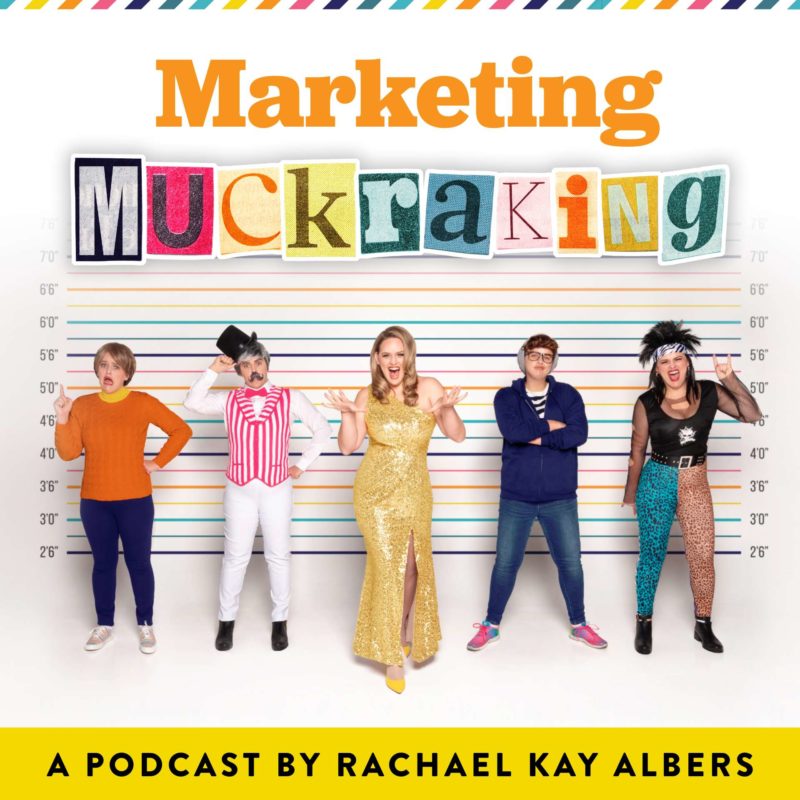
About the Marketing Muckraking podcast
Welcome to Marketing Muckraking, the show that asks not simply what brand culture can do for us, but what it’s doing to us — with your host, creative director, brand strategist gone wild, and the court jester of online business, Rachael Kay Albers — making fun of business and making business fun.
This is the show for rebels, revolutionaries, and renegades who run businesses that burn the rulebook. If you’re sick of business podcasts with all the answers — I’ve got nothing but questions.
Where we swap B School for FREE SCHOOL, easy for honest, and goal digging for marketing in pursuit of meaning.
If you love the show and want to support more marketing muckraking, please subscribe, review, share with your enemies, and if you really want to make my day, you can go to BuyMeARobe.com and leave a little something on the nightstand.

I have no freebie to tempt you with.
No automated email sequence to whisper sweet nothings into your inbox late at night.
Here’s what I do have: a hilarious show on how to market with integrity, sell your services & products successfully, and still not take yourself too seriously. Join me here:
